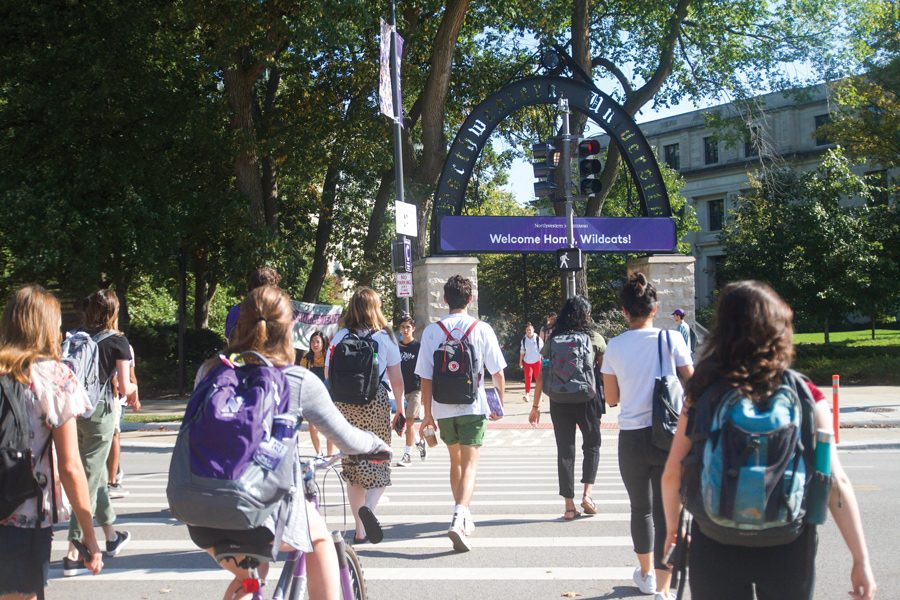Northwestern students get their political beliefs from parents, but peers may be a bigger influence
Allison Ma/The Daily Northwestern
Students crossing Sheridan Road. Recent studies show that school, rather than family, has the biggest role in determining students’ political opinions.
November 5, 2018
Wenyi Xu once shared his family’s political beliefs.
“I grew up in a family where we talked a lot about politics — that’s why I’m a political science major,” the Weinberg senior said. “My family has a strong influence for my earlier political leanings.”
While family shapes political identity, recent studies show that the effect of strong parental political opinions doesn’t last: children raised in politically engaged families tend to be more politically active outside of the family, and form their own views, sometimes different from those of their parents later in life. Factors like civics education, school environments and generational shifts also have a large impact on student’s political beliefs.
Xu grew up in Beijing, and said his political opinions didn’t change until he went to an international high school. His family only talked about U.S. politics in regards to its military presence in the Middle East, he said.
He added that his high school and college education have had a larger effect on his political opinions, as they began to diverge from his parents and make him think critically about his beliefs.
“I only cared about the presidential election in high school,” Xu said. “But after I came here, I’m focusing more on other social issues: social inequality, racial discrimination, LGBTQ communities, student debt and gun control.”
Medill freshman Marleigh Thorn said she had little understanding of politics when she was young, so she simply followed what her parents believed. She added she didn’t learn about the government until taking a civics class her freshman year in high school, where she started forming her own political ideas.
Civics class is designed to help students learn about the United States government and promote trust in the political process. Illinois is one of 42 states that require students to take a civics course before graduation. Matthew Nelsen, a graduate student studying the effect of civics education, said research indicates that civics education courses are positively related to political participation.
A study by researchers at Columbia University shows that the generation in which one is born and “shared” public events also have lasting effects on political ideology. Young people’s first experiences with the political system tend to have more weight than later ones. Big moments around young adulthood, often have a lingering “cohort effect” in the group, according to the study.
“In this generation (there are) so many school shootings,” Thorn said. “Our generation may have a more strict policy on gun control than the previous generation, though our families may disagree with that.”
Second-year graduate student Udayan Vaidya said his undergraduate experience at the University of Chicago was the most influential factor that shaped his political opinions.
As a economics major, Vaidya said he used to believe in “efficiency,” and at one point thought the education system should be privatized to increase efficiency. Conversations outside the classroom with the “diverse” and “vocal” student body helped him reflect on his own political beliefs — Vaidya said he became more liberal after completing his undergraduate education.
“The way my friends ask questions led me to carefully think about who do these systems actually benefit,” he said.
Email: [email protected]
Twitter: @ScarletTianjiao


